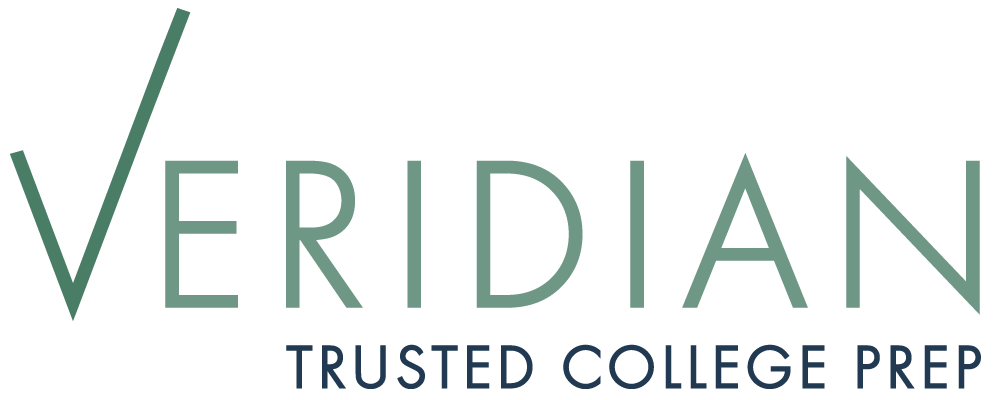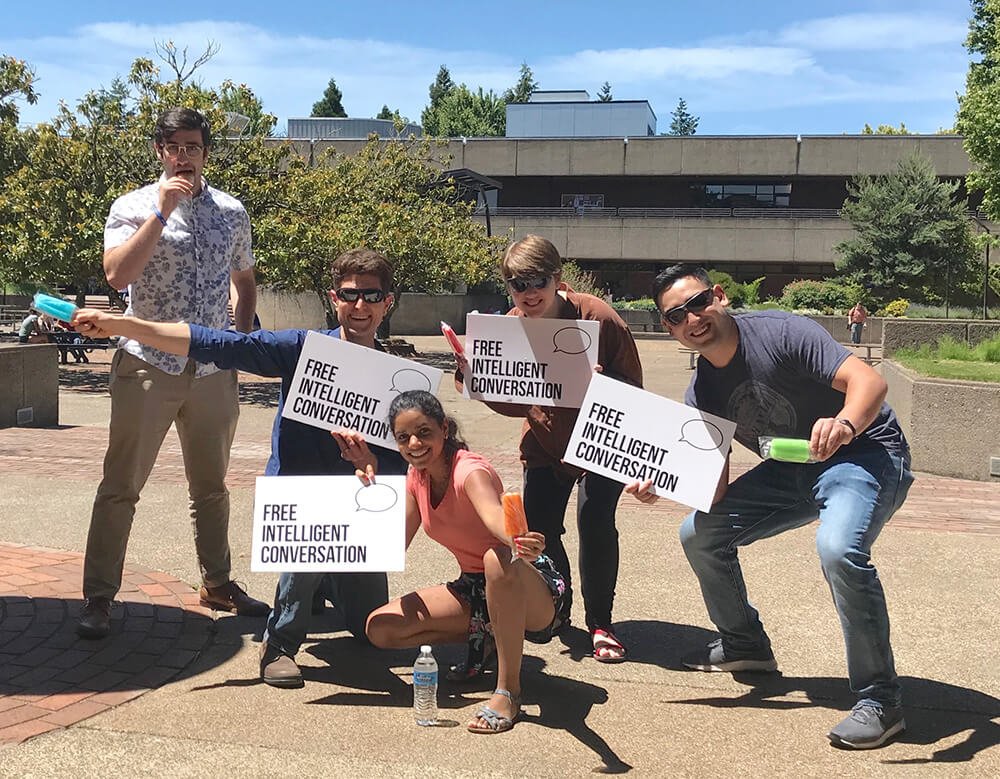Choosing A College? Twentysomethings Reflect
By Valerie Erde and Eve Sneider
When you build a college list, there are a host of factors to think through. Do you want a big school or a small one? What do you think you might want to study? Do you want to play sports or participate in Greek life? Once you know where you’ve gotten in, you revisit those questions all over again. After all, this is a four-year and possibly six-figure investment.
So, what makes a great college? I can’t answer that for you, and I think I’d rephrase that to “what will make a great college for you?” When I recently took a college list-building class with educational consultant Dr. Steven Antonoff, several things he said really stuck with me about what makes a “great college.”
Per Dr. Antonoff, a great college is…
a place where you will learn more about yourself, others, and the world.
a place where you are pushed but not shoved,
a place that will enhance and support your development.
“You are not picking a vacation site; you’re picking a place you can grow and learn.”
I often find that students’ ideas of what they want change a lot between the end of junior year, when they make their college lists, and the end of senior year, when they decide where to spend the next four years.
It’s so hard to know what exactly you’ll want out of college before you’re on campus. Not to mention, by the time you graduate from college, the things you value and want to prioritize will almost certainly have shifted all over again. Trite as it is, the saying “hindsight is always 20-20” applies here. That being said, it never hurts to try to think ahead.
While many students and parents pore over college rankings both to craft initial lists and to make final decsions among acceptances, I’ve already written about this topic. Instead, I asked a twentysomething acquaintance to share her and her peers’ insights regarding their own college choices and what they’d consider if they had to make that decision over again.
by Eve Sneider
I got into college almost ten years ago, and I still remember it like it was yesterday. I brought my computer into the living room, where my parents were waiting eagerly, took a deep breath, and opened the email. When I saw “Welcome!” flash across the screen my heart began to race and my vision blurred. I couldn’t believe it. I was going to college!
But, crazy as it is to believe when you’re in the thick of the application process, getting in isn’t the end of the road. Once you have options, you’re faced with one the biggest decisions you’ve ever had to make: where to spend the next four years.
If you’re reading this post right now, chances are you’re either a junior trying to decide where to apply, or you’ve received one - or several - “Welcome to…” and you’re in throes of trying to answer this question. First off, let me say, congratulations! You’ve worked so hard, and wherever you end up going, I can confidently say you’ll learn so much and meet so many people who will become really important to you. Chances are that the things you’ll end up loving most about your school will be things you didn’t even know about when you applied or matriculated. That was certainly the case for me. When I applied to colleges, I thought I was going to be a Classics major and a playwright. Yale, where I was accepted early and ended up going, had a core curriculum program for first years that appealed to me, and a ton of creative writing and theater opportunities. Plus, I wanted to be at a big school, and, having grown up in a big city, I loved the idea of the urban campus.
Five years out of college, very few of those aspects of the school feel important to me when I think back on my time there. I majored in American Studies, a terrific department at Yale, but also a field of study I’d never heard of until an older classmate introduced me to it. While the theater program was amazing, I ended up finding a community and a passion in student journalism, something I fell into because I wanted to learn a little more about the city of New Haven. Almost all of my best friends belonged to my residential college, a feature of Yale that didn’t matter to me at all when I was nursing fantasies of attending a huge university. And while I enjoyed going to school in a city, I can see now that I probably also would have loved being on a more rural campus.
All to say, there’s so much it’s hard to know before move-in day. Plus, you’re going to grow so much these next four years, and your preferences will shift accordingly. Don’t believe me? Nearly every college graduate in my life agrees that the things they would weigh most heavily now look pretty different from what they were thinking about when they decided where to attend school. I asked a few of them to share their reflections on what factors felt important when they were deciding where to go to school, and what ended up shaping their college experiences in ways they wouldn’t have expected at eighteen. Hopefully these reflections will help you figure out what questions to ask and considerations to weigh as you make your own decision. As you’ll see below, everyone’s college career took them in unexpected directions. More than anything else, that’s something to look forward to.
McGill University: Looking Beyond The Pretty Cover
“My decision of where to go to college was largely shaped by where I wanted to live for the upcoming few years. I was really drawn to the city of Montreal from prior visits. Without clear direction on what I intended to study or what line of work I’d want to do after graduating, I focused on life in the more immediate future. Touring universities felt like a sales pitch. There was a lot of emphasis on amenities and less about curriculum. Something about this didn’t sit quite right with me. I found tour guides were generally very quick to deflect hard questions or known criticisms of universities. McGill didn’t do this which was a strong appeal for me. The tour guides spoke pretty candidly about the shortcomings we’d likely face as students and known criticisms of the institution, and I liked getting a more honest, first-hand account of what to expect. Also, McGill’s student image was somewhere between academic and artsy which I found appealing.
Despite having been warned about the lack of hand-holding [at McGill], the lack of university support and guidance was more negatively impactful to my experience at the university than I had expected. The large class size was a major downside. I found it a lot harder to build personal connections with professors and get to know my peers within the context of classrooms. The classes were primarily lecture style. Post-university I realized how many friends of mine who had attended smaller institutions had truly built mentorships and lasting relationships with professors which wasn’t my experience.
Also, being American abroad during Trump’s presidency came with its challenges. In some ways I think I was less hyper aware of the political climate in the States because of the geographical distance, but there is also a Canadian narrative of Canada as a utopia in comparison to the US which felt heightened during Trump’s time in office. People really liked to generalize the US into a monolith.
On the flip side, I found like-minded friends who supported me during my time at school, and beyond. I found university to be where I built friendships more rooted in similarity and commonality, rather than circumstance and surrounding. These friendships were more impactful than ones I’d formed ahead of going to college and really began to shape what adult friendship could look like for me.”
B.S., Software Engineering
Carleton College: Carving Out A Community
“I wanted to go somewhere that was strong in math and science but also had good humanities programs so that I could take a bunch of different kinds of classes. I also wanted to go to a relatively smaller school that had a strong community feel and to have a rural adventure away from the East Coast. And I liked the idea of going somewhere that seemed intellectually rigorous without being super competitive or pretentious, and somewhere where Greek life was marginal at best. All of these considerations led me to choose Carleton College.
As for my time there, I didn't expect that Carleton's athletes would have such a strong influence on the main social scene, but I was also surprised that I'd end up feeling like a part of that scene by the time I was a senior as a club athlete. I also lucked into living off-campus senior year with my close friends, which had a strong impact on feeling like I was gaining independence as I got older. My sense is that small schools don't always scale as well with one's age as do bigger schools, and I think I would have felt more hemmed in had I not been able to move off-campus.”
B.A. Mathematics
Yale: Defining Your Own Version of Success
“I visited and applied to a ton of schools, none in cities. Factors that were important to me then included the feeling on campus, the setting, whether students liked it and were nice and friendly. I didn’t think about each school’s academic focus that much because I was interested in everything, though I chose to apply as a STEM student because I had research and a background in science from high school.
What shaped my experience most was just how curious Yale students are. My peers were compassionate, politically oriented, and driven. It also ended up making a huge difference that the school was humanities focused. I picked classes and my major, history, based on the best professors, so if I’d gone elsewhere I may have majored in an entirely different discipline.
Also, the fact that the campus was politically oriented totally opened my eyes to politics. I think Yale students care about going out and doing good in the world and part of the way they see success is having a positive impact. I don’t know if that’s true at all colleges. Every school defines prestige differently. That would be an interesting question for high school students to ask college students: how do people think about what success is at your school? I see success differently today—whether or not my work has a positive impact feels like the ultimate marker of what I have accomplished, not how prestigious my achievements are—and I’m grateful for that.
Ultimately, you simply cannot know what it will be like. You do your best with the information you have at the time.”
B.A. History
Eve Sneider is a writer, editor, and researcher based in Brooklyn currently working on her first non-fiction book. At Yale, Eve was the Editor-in-Chief of the Yale Herald and winner of the Henry Strong Prize in American Literature. Upon graduation, Eve spent three years at Wired Magazine, first as an editorial assistant, and then as a research and staff editor.

